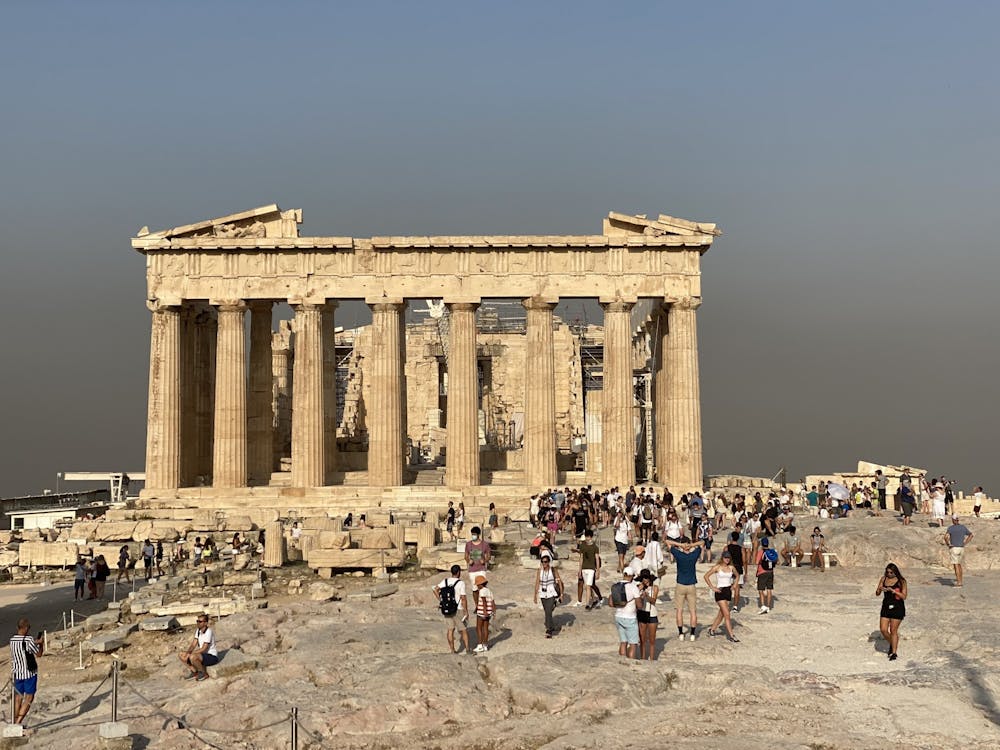The minute I arrived in Chapel Hill, all I wanted to do was leave.
Studying abroad had been a goal of mine long before moving on campus, and despite UNC being beautiful and charming, the idea of graduating college without having left it sounded anything but. However, after being accepted into two study abroad programs that were subsequently canceled due to COVID-19, I was convinced that going abroad was not going to be an option for me.
Despite all odds, I was able to enroll in a program to study abroad in Greece. I spent this past summer exploring Greek islands and cities on the mainland, forming genuine connections with locals and learning about Greek culture and history. I arrived back in North Carolina entirely ready to present the new and improved version of myself. The version that was culturally adept, well-traveled and forever changed because I could now order my coffee in Greek. My confidence was at an all-time high since being able to read enough street signs to make my way back to my apartment in Athens without Google Maps (that one time).
Less than a month later, Athens was in flames.
Wildfires raging throughout Greece have destroyed multiple villages and are threatening to encroach on many more. Climate-change-induced hot and dry weather fuels the flames and is contributing to the worst heatwave Greece has experienced in decades. Firefighters have been struggling to get the fires under control and Greeks are calling for help internationally.
I feel hopeless watching this tragedy from a distance. Having just visited Greece during a time of safety and stability, I felt like I had taken the best of what the country had to offer just to leave before a crisis hit.
It’s true that being an ethical traveler includes respecting cultural norms, abiding by a country's rules and treating its citizens with respect while abroad. However, being an ethical traveler doesn’t stop upon returning home. It’s all too easy to ignore global issues and focus instead on what’s happening in our own nation. But maintaining a commitment to one’s global community is imperative to maintaining a healthy planet and society as well.
The pandemic has shown us now more than ever how closely interconnected our global society is, and how our personal actions may impact people in all corners of the world. And just as the entire world can be connected in ways that negatively impact us, we can also be connected in ways that have the potential to enact positive change. Contributing to efforts to mitigate the Greek wildfires and assist those most dramatically impacted by them, petitioning leaders to contribute to the efforts and educating those who aren’t aware of the crisis are only some of the ways to enact positive change from a distance.
Learning a few phrases in Greek didn’t result in me being forever changed and well-traveled. Understanding my role in relation to the rest of the world and further committing myself to becoming a more ethical member of my global community is the real merit of having traveled abroad.




